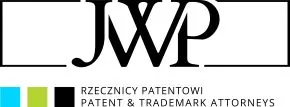- within Technology topic(s)
- in European Union
The beginning of February saw a decision taken in a high-profile case of Ironburg Inventions versus Valve concerning the infringement of a patent belonging to the former and relating to a design of a gaming controller. The case is a perfect example of how important it is to have patent clearance search conducted for a product in a given market to make sure that the product is safe in business transactions. It also proves that business entities should treat the assessment of the risk of infringement of other entities' rights with the utmost seriousness.
Of course, the whole thing is about the Steam Controller sold by Valve in the past, or rather the positioning of rear-facing side buttons on the device. The case started in 2014 and it has ended only recently with Valve being ordered to pay $4 million. Given that Ironburg Inventions' original claims amounted to (a whopping) $11 million, and that the dispute was about, among other things, illegal monopolistic practices and Valve using its competitive advantage (and by the way, the company has been fined this year by the European Commission with a penalty of €1.6 million for geo-blocking practices), we are bound to hear about the case again...
Sounds like the plot of a good legal thriller, doesn't it? It definitely does. Disputes between big players concerning their flagship, commercially successful products are usually quite spectacular. However, this does not mean that actions for infringement of industrial property rights are filed only against corporations, while smaller entities are spared. Statistics on intellectual property infringement cases heard in Polish courts show that the percentage of such cases is constantly increasing. This is significant as infringements primarily apply to the technologies used or the goods already in the market, i.e. the solutions entailing considerable (if not huge) expenses for the business entity that have been already incurred. As regards the case in question, it is worth noting that the sale of the contested Steam Controller stopped in 2019, which is almost two years before the court ruling. So is there any way to avoid patent infringement proceedings, which drag on for years and, what's worse, cost a lot of money?
To answer this question, first we need to clarify what patent protection really is. As a general rule, by obtaining a patent, the patentee acquires an exclusive right to use the invention for commercial or professional purposes in the territory where the right is valid. In other words, the patentee may prohibit a third party, i.e. the party having no patentee's consent, to use the patented invention for commercial or professional purposes in the territory covered by such patent protection. Accordingly, the offering or marketing of a product by unauthorized persons, or such persons' use of a solution implementing technical features protected by a patent in force in the territory of a given country, will constitute a patent infringement. What's important, the activities that bear the hallmarks of patent infringement cannot be justified by one's lack of awareness that the patent right exists on the principle of presumption of public knowledge of register entries, including patent registers entries. Thus, it means that the legislator imposes on the business entity – even before they launch a specific solution on the market – an obligation to have patent clearance search conducted for the solution to check for any applicable exclusive rights in force in a given country. And it is worth the effort since on account of patent infringement (pursuant to Article 2862(1) of the Industrial Property Law in Poland), the patentee may demand that the infringing party should not only cease the infringement, but also pay back the unfair profits made, and in the event of a culpable infringement, also to redress the damage inflicted. In most cases, the infringing party is required to pay a certain amount of money, which is largely dependent on the losses the patentee has incurred and – more often than not– it is usually quite substantial for the infringing party.
We can say that a particular solution is free and clear of others' patent rights when it does not fall within the scope of legal protection defined by a given patent. And the scope of patent protection is specified in patent claims, i.e. a relevant part of patent description disclosing a set of technical features of the invention that are essential (in light of the technical problem solved) and necessary for its implementation or functioning in an industrial application. When it is found that the solution being analysed for possible patent infringement doesn't have all the essential, and defined in claims, technical features of the invention protected by the patent, the solution should be considered to be free and clear of others' patent rights.
Of course, the issues related to confirming that the solution is free and clear of others' patents rights or stating otherwise must be analysed strictly with reference to the laws or practices applicable and applied in a given country as well as national jurisprudence regarding patent infringement interpretation. Such an analysis also requires an in-depth legal and technical opinion, often based on a broad understanding of the features of the solution, also as regards possible equivalent features in that solution as covered by the interpretation of the patent claims.
Sound complicated? I'm sure it does. This is why patent clearance opinions and searches are said to be one of the most complex, laborious and responsible analyses carried out by patent attorneys. Undoubtedly, however, such opinions and searches help to provide specific answers to the questions related to the assessing of patent infringement risk. That's why, they are an effective tool to protect one's own interests and gain necessary time to introduce appropriate changes in the design of the solution or stages of the technology being implemented, especially when the decision to launch the product on the market was taken by the business entity a long time ago.
The content of this article is intended to provide a general guide to the subject matter. Specialist advice should be sought about your specific circumstances.
[View Source]

